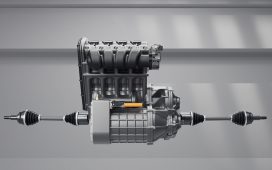Volkswagen owners targeted by thieves who have stolen cruise control sensors from cars across London are furious after discovering the car’s “poor design” that makes them so easy to steal is set to cost them £1,600 each.
The sensors, which cost about £700 each, are fitted behind the VW badge, and appear to be a popular target for thieves.
A VW specialist in the Midlands said he had experienced a big jump in sensor thefts “in the last few months”, and in recent weeks, motorists across the capital have been reporting thefts on social media groups.
Tara O’Driscoll, from Clapham in south-west London, said she had fallen victim to the crime and had heard of more than 50 other reports of thefts in the borough since posting on social media about her experience. On some London roads, owners have reported that every VW car that features the sensor has had it taken.
She has been told it will cost about £1,600 to replace the sensor on what she described as her “very ordinary” VW Golf.
“Every VW car in our area that has this sensor has been targeted and it has been the talk of the community on WhatsApp and other media, not least as the bills to fix it are so big. It seems the part itself is expensive and only VW can calibrate it to work with your car,” she said.
“People face having to make expensive insurance claims which will only push up their premiums for years to come, or pay the £1,600 upfront.”
The part is vital to the car’s adaptive cruise control (ACC) as it measures the distance to the vehicle in front, and adjusts the driving speed accordingly. However, it is easily accessible and is held in place by three screws.
VW owners first began reporting the theft of ACC sensors in 2016, and some have been hit by a second theft after the first was replaced.
Owners are questioning why VW has not fixed this known problem. They now want VW to come up with a cost-effective solution – and an improved design to stop it happening again. The company has, so far, refused.
O’Driscoll said: “Given that it is clearly such a poor design, we feel that VW should be making a contribution – or at least doing the work at cost. If we have the work done, what’s to stop it being stolen again the next week?”
Rebecca Phillips, another Clapham resident whose VW Passat was similarly targeted recently, said she was furious that the manufacturer was not offering a cheaper solution.
“When we searched online, it soon became clear this has been happening for years,” she said. “There are videos showing how easy it is to steal these sensors, and yet nothing has been done. Our car is now beeping safety warnings at us and VW has told us not to drive it until it is repaired.”
A VW spokesperson said: “We are sorry to hear about the issues being faced by this group of customers and we have advised them that this is, first and foremost, a matter all victims should discuss with local police. This does appear to be a localised crime issue and we are not aware of similar incidents happening elsewhere in the country.”
The company said it does not believe that this problem can be attributed to a design flaw or defect, and therefore it will not be offering any financial help to the owners.
It said that a missing radar sensor would not result in an MOT failure, as owners have feared.
“As this part is chassis-stamped, it can, once reported to us via the police, be locked so that it is inoperable on another vehicle – and as a result worthless on the black market,” the spokesperson said.
The VW sensors are the latest expensive car parts to be targeted by thieves. There have previously been similar spates of Land Rover headlight and hybrid car catalytic converter thefts.









